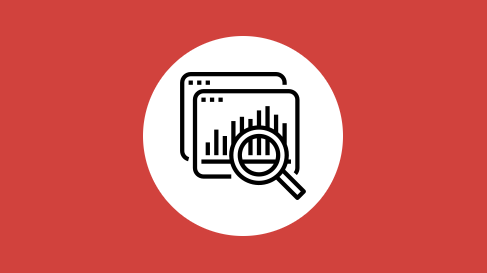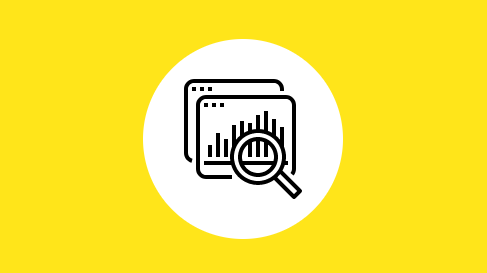About the project
How many patients come to the emergency departments every day? How urgently do they need to be treated and with what complaints did they visit the emergency departments? Unfortunately, this data is not yet available nationwide in Germany. With the AKTIN platform and the AKTIN Emergency Department Data Registry (EDDR), which are the result of a joint research project between Magdeburg University Hospital and the Institute of Medical Informatics at RWTH Aachen University Hospital, this information can now be recorded and made available in a decentralised manner in the participating hospitals. AKTIN stands for "Alliance for information and communication technology in intensive care and emergency medicine".
The AKTIN infrastructure and the AKTIN Emergency Department Data Registry (EDDR) are operated in AKTIN@NUM. Currently, 56 university and non-university facilities at all levels of care are connected to the AKTIN infrastructure; from 2025 there will be over 70. The AKTIN infrastructure offers a platform that makes it possible to automatically record standardised clinical data from patient care on a daily basis - across all sites and independently of the primary electronic documentation systems, in compliance with data protection regulations. AKTIN also includes the development and maintenance of documentation and interoperability standards in the field of intensive care and emergency medicine as well as a technical and organisational platform based on these standards. The aim is to make this data usable for (care) research, quality assurance and health reporting (surveillance). The AKTIN team operates the AKTIN EDDR as an application on the platform. The EDDR enables access to data from emergency departments for the above-mentioned purposes.
Until the development and distribution of the AKTIN infrastructure, data surveys on the health status of the population in general or in the context of infection outbreaks, for example, had to be implemented at short notice and the data often collected manually after the hospitals had reported them to the local health authorities. Alternatively, the data was collected in monocentric studies. This led to considerable additional work for medical staff and, in some cases, to delays in the availability of data.
In the AKTIN infrastructure, data from the respective documentation systems is continuously transferred to a local data warehouse (DWH) via a standardised interface (HL7 CDA). Stored in the DWH, the data is available for the various applications and remains primarily the responsibility and under the control of the respective institution. Requests for specific research questions are made available to the DWHs via a broker. If the institution releases its data for a specific enquiry, it is collected in an aggregator and processed in the Trusted Research Environment.
For the AKTIN Emergency Department Data Registry (EDDR), the data is collected and made available in accordance with the DIVI e.V. dataset emergency department and the data in accordance with Section 21 of the KHEntgG. The Data Use and Access Committee of the EDDR decides on the approval of a research question on the registry data set; data analysis is carried out in the Trusted Data Analytics Centre (TDAC).
In the first funding phase of the NUM, 29 additional emergency departments were connected to the infrastructure in the AKTIN-EZV project and have been participating in the register since then. Continuous data collection in the emergency departments makes it possible to monitor clinical emergency care in Germany on a daily basis. The collection of daily routine data breaks new ground at the interface between patient care and public health surveillance. AKTIN is thus making a contribution to recognising developments in the current pandemic or future epidemics and dangerous situations.
The nationwide data collection realised through this project enables a spatially differentiated overview of patient numbers and care details in emergency departments. By analysing the symptoms and diagnoses that occur, the influence of various diseases on patient care is also examined. The data collected via AKTIN from the participating emergency departments are regularly published in the RKI's "Emergency Department Surveillance Dashboard" and are included in the BMG's Infection Radar once a week.
RKI Emergency Department Surveillance Dashboard
Infection radar of the Federal Ministry of Health
The aim of the AKTIN2.0 research project, which is based on the AKTIN@NUM infrastructure, is to further expand the AKTIN Emergency Department Data Registry (EDDR) into a comprehensive infrastructure for "real-time care research" in emergency departments.
The infrastructure of the AKTIN EDDR enables research-related access to routine emergency department care data. The concept of the register is based on interoperability standards using doctor's letters in HL7 CDA format. The comprehensive establishment of interoperability standards enables internal use for purposes outside the AKTIN EDDR. These can thus be used, for example, by the Data Integration Centres of the Medical Informatics Initiative (MII) - thus enabling compatibility with MII projects.
The aim of the research project is to achieve nationwide coverage of data collection from emergency departments, which can only be realised through cooperation between a large number of participating partners. The academic medical centers prioritised in this project play a key role in this network. They play a central role in medical care and are also important for remote hotspots due to their control and communication function during the pandemic. The large database and comprehensive supra-regional coverage are the prerequisites for nationwide surveillance, for example. Standardisation also enables the transfer of basic acute care data from the AKTIN EDDR to other registers. Furthermore, networking with the PREPARED project enables expansion and interdisciplinary collaboration in the field of surveillance of infectious diseases. Infrastructures, content and communication channels are harmonised to enable synergistic use.
The aim of the project, which has already been completed, was to expand the AKTIN Emergency Department Data Registry to 50 emergency departments, both academic and non-academic, to create a comprehensive infrastructure for real-time care research in emergency departments.
Analyses of routine data from the COVID-19 pandemic helped to gain insights into the use of central emergency departments. In addition, daily updated data from the emergency departments was automatically provided for epidemiological evaluations and COVID-19-specific research questions were addressed in the process.
In order to further improve the informative value of the data, the "AKTIN-EZV" project has brought us closer to nationwide coverage by connecting a further 17 acadmec medical centers and six non-academic hospitals. The daily data delivery to the RKI and the utilisation of the data were further developed in the course of the project. The project also addressed three COVID-specific research questions as use cases.
Daily, comprehensive data collection in Emergency Departments enabled continuous monitoring of events in clinical emergency care in Germany for the first time. Previously, data on the health status of the population in the context of infection incidents could only be collected several days to weeks after the clinics had reported to the local health authorities. Anomalies could be detected through so-called signals in the surveillance. This made a valuable contribution to recognising the development of the COVID-19 pandemic.
The AKTIN infrastructure has established the technical basis for an independent system that can also detect and describe other health phenomena. In future pandemics or supra-regional health events, these mechanisms can also be used to monitor diseases that show a different symptom spectrum than COVID-19, e.g. diseases of the liver, kidney, digestive system or nervous system and not primarily affecting the respiratory organs.

Data from the AKTIN Emergency Department Data Registry on the average length of stay in participating emergency departments is published in the BMG's infection radar, which was previously called the Corona Pandemic Radar. The burden on emergency departments can be derived from the length of stay of patients in the emergency departments. These analyses are used in the BMG infection radar to show the burden on the healthcare system: the more patients, higher numbers of severe cases, decreasing staff resources or a lack of hospital beds, the longer the length of stay in emergency departments.

The RKI's Emergency Department Surveillance Dashboard shows the total number of cases in emergency departments as well as the number of cases of certain syndromes caused by infectious diseases. The number of patients presenting to emergency departments with infectious respiratory diseases is a very good reflection of the incidence and severity of the respective wave of infection (e.g. Covid and influenza).

Data from the AKTIN emergency admissions register also contributes to political decision-making: The Government Commission for Demand-Oriented Hospital Planning used register data on the age trends of patients in Emergency Departments and published it in the 4th statement in January 2023:
In the 9th statement in August 2023, the Government Commission recommends AKTIN as a starting point for a comprehensive emergency register:

The AKTIN Emergency Department Data Registry is closely linked to the Robert Koch-Institute and the sites of the Medical Informatics Initiative (MII), which facilitates a continuous exchange and the utilisation of synergies wherever possible and leads to additional research projects.
The AKTIN registry infrastructure has been and is being utilised in several third-party funded projects: ENQuIRE (GBA 01VSF17005), OPTINOFA (GBA 01NVF17035), ILEG (GBA 01VSF19017), ENSURE (BMG ZMVI1-2520DAT803), Connect_ED (BMBF 16SV8979), EDCareKids (GBA 01VSF23042), KlimaNot (GBA 01VSF23017)

As part of the Medical Informatics Europe conference, a pro and con session entitled "Federated and distributed medical research - Fortune or misfortune?" and a workshop entitled "Caring before sharing - Validating EHR Data in Federated and Distributed Research Infrastructure An international Workshop" were organised. Both events were organised in close cooperation with the Norwegian Primary Care Research Network "PraksisNett".
At the TMF Register Days on 8 and 9 May 2023, the AKTIN Emergency Department Data Registry was awarded the init AG Innovation Prize for Medical Registers as the 3rd prize winner




